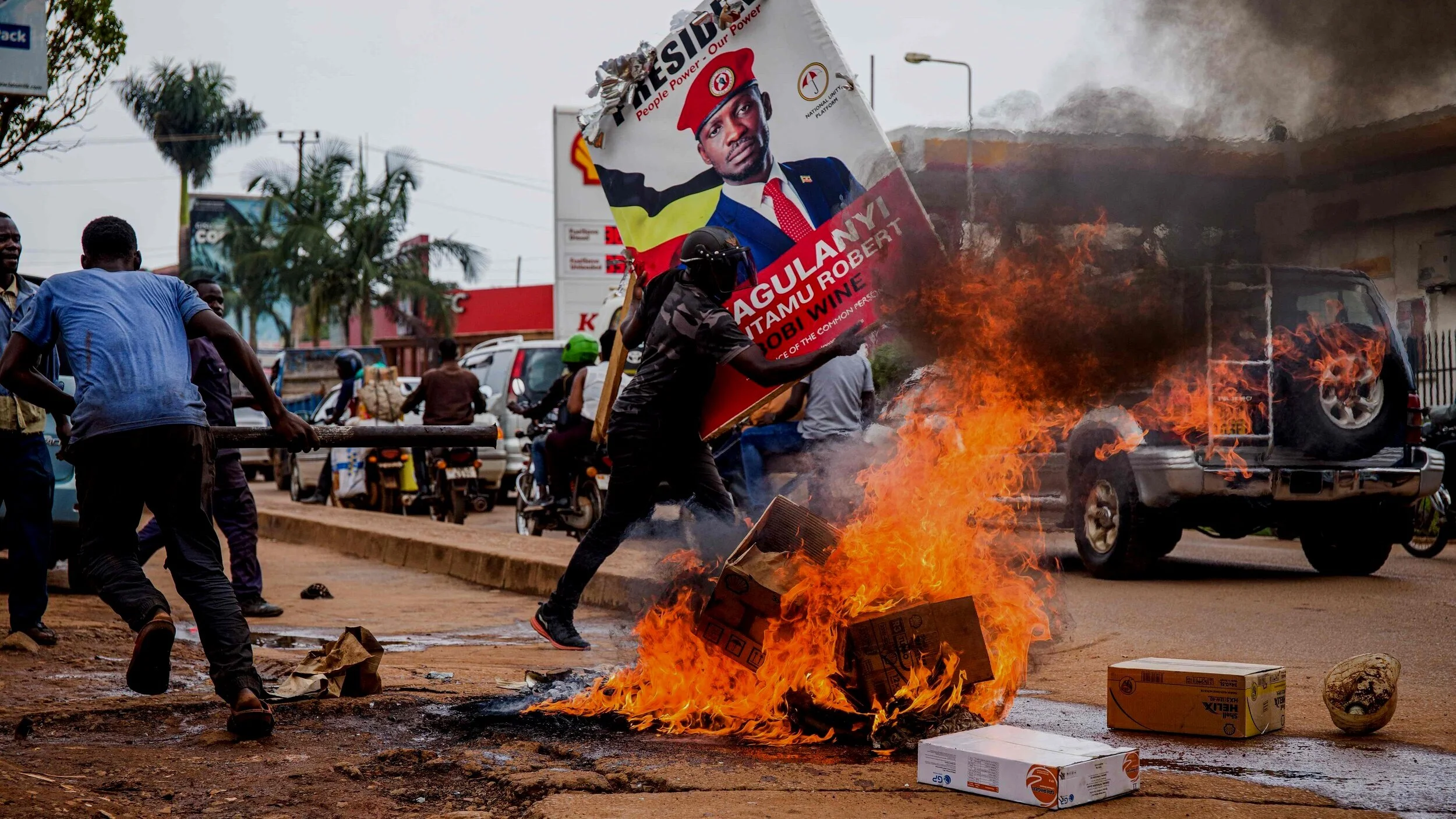The struggle for freedom and democracy in Uganda goes back to colonial times. The territory that is called Uganda today is a colonial creation of recent history, like most other political units on the African continent. Western imperial powers provide economic and military support to sustain these neo-colonies, often against the will of the people, and Uganda is no exception.
Yoweri Museveni’s dictatorial rule in Uganda reflects the crisis of the colonial/capitalist system. Uganda is a product of foreign incursions on the continent. It was created for outside purposes that were never the purpose of the indigenous peoples of that territory. Museveni's power, authority, and rulership are based on the bullet and not the ballot.
Force, coercion, and militarism have been at the center of the politics and management of the territory that we call Uganda today. The rights and freedoms of the people have never been fully guaranteed and protected. How do Ugandans wrestle the power away from a brazen dictatorship? Pan-Africanism is the answer to ending neo-colonialism and Museveni's dictatorship to create a political unit that rules by the will of the people.
*************************************
U.S. Out of Africa: Voices from the Struggle
Namata Serumaga-Musisi is a Pan Africanist activist with roots in Uganda. She serves as a Diaspora Coordinator for People Power, part of the Ugandan liberation movement. She is also the Commander of Creative Arts & Advocacy with Ghana-based Nkrumahist movement the Economic Fighters League, led by Ernesto Yeboah.
AWB: Can you speak to the repression that people on the ground have experienced at the hands of the regime?
Namata: We must begin by acknowledging Ronald Segawa, a 22-year-old People Power mobilizer of whom videos are circulating. He was kidnapped and brutalized by the regime, something that has happened to many people on the ground in Uganda. There are about 3,000 Ugandans who have been abducted and are now missing. This all happened during the election period, which was about two months long.
It’s hard to wrap one’s head around figures like that, but one thing that a lot of Africans will find is that if you look at the deprivation of our rights that is happening in Uganda, you’ll recognize them as things that are happening across the continent. You have people fighting the brutal regimes of Paul Biya in Cameroon and Faure Gnassingbé in Togo, for example.
AWB: What work needs to be done to assist in the liberation effort in Uganda?
Namata: In order to liberate ourselves, we must get organized. The election has happened in the typical fashion, though the level of oppression during the election was unprecedented. As a people, it is up to us to look for other ways to liberate ourselves.
Several of us work with other movements to say how is it that Africans can come together to support this effort. I work with other movements outside of Uganda to enable people on the ground and mobilize resources across the board.
AWB: What do you see for the future of Uganda?
Namata: Uganda will be free, but this is not going to be sustainable until we come together. Until Africa unites, we will not be able to liberate ourselves properly or with any enduring effect. We will always be compromised if we are not united.
The cynicism we have around the African Union is understandable because this is not the African Union of Kwame Nkrumah. It is not representing the needs of the Africans. It is not representing the needs of Ugandans. It becomes the work of the people on the ground to organize and find ways to get us all free.
*************************************
US Government Turns Somalia Into Failed State to Steal Its Oil
“Bombing Somali civilians is one of AFRICOM’s main projects,” writes Mohamed Haji Ingiriis, a young Somali historian.
March 24, 2021 by Nick Alexandrov
Quest for “Black Faces in High Places” Deceives the People
Dr. Joy James urged activists to make the link between US military occupation of Africa and militarization of the police in Black America during a Decolonial Feminist Collective webinar.
March 22, 2021 by Black Agenda Radio
A Place the World Has Forgotten: Inside the Horror Show of Northern Uganda
The U.S. and UK contributed to the conflict as they offered training to the UPDF, bought military hardware and gave cash to the Ministry of Defense for maintenance of equipment.
March 17, 2021 by Otim Tonny
Biden's Military Strategy in Africa
The U.S. deployed the first naval ship to Eastern Africa in over a decade in a new approach by the Biden administration, which is using military power to pursue imperialism in Africa.
March 8, 2021 by Africa Today
A Guide to U.S. Empire in Africa: Neocolonial Order & AFRICOM
Abby Martin speaks to Eugene Puryear to discuss US imperialism in Africa: From the Berlin Conference to the current sprawl of AFRICOM "counterterrorism."
March 13, 2021 by Empire Files
The Costs of United States’ Post-9/11 “Security Assistance”
Around the world, what the U.S. calls security assistance has fed insecurity, bolstering the militants that react against the government injustices exacerbated by this aid.
March 4, 2021 by Stephanie Savell
*********************************
Join the U.S. Out of Africa Network to get the AFRICOM Watch Bulletin in your inbox.
Banner photo: Protesters took to the streets of Kampala in November after the arrest of then-presidential candidate Bobi Wine. (Getty Images)

